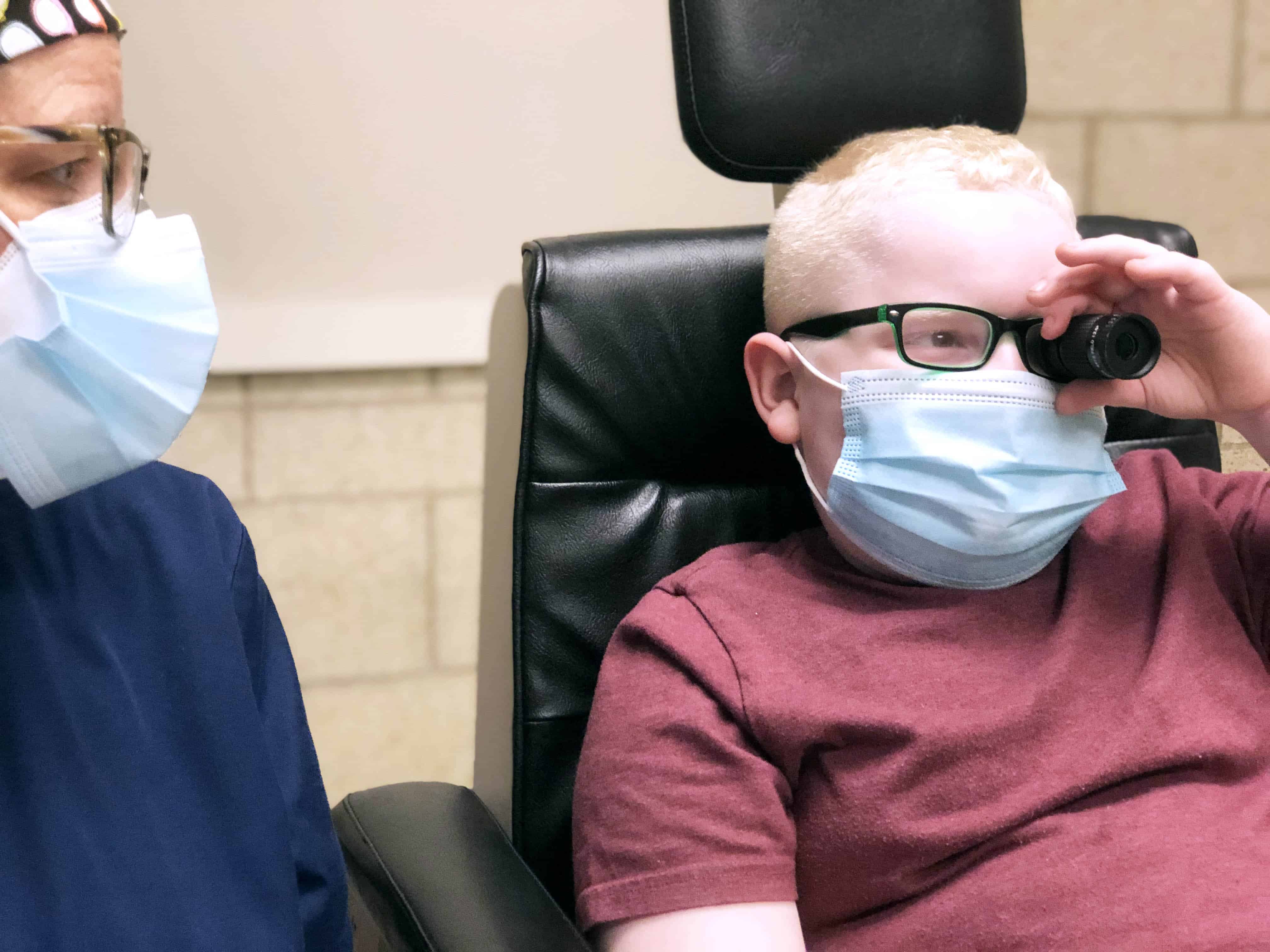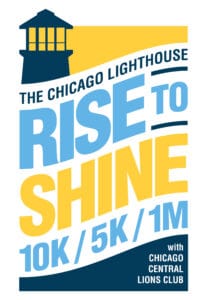Our Comprehensive Approach to Vision Treatment

A diagnosis of low vision affects more than a person’s ability to see.
Losing one’s vision involves losing more than one’s eyesight. For many, particularly those who experience vision loss later in life, coming to terms with one’s disability is a grieving process not just for a person’s ability to see but also for a future different than the one they were working toward.
Individuals with vision impairments are two to three times more likely to be depressed than the general population, according to JAMA Ophthalmology. Vision loss is also reported to have a greater impact on day-to-day living than losing memory, a limb, speech, or hearing. Individuals with vision impairments are also at an increased risk of falls, fractures, and other physical injuries, according to the National Center for Biotechnology Information.
The Chicago Lighthouse’s comprehensive vision services help patients learn to live – and even thrive – with vision loss. Beginning with a patient’s first low vision appointment, our goal is to understand their short-term needs and long-term dreams and accommodate both to the best of our abilities.
“Often, patients are told by their personal doctors that there is nothing that can be done to restore their vision or treat their eye condition. Our clinic’s motto is there is always something more that can be done,” says Dr. Kara Crumbliss, Vice President of Clinical Services. “Though people with low vision may be restricted in restoring their vision, we can often find ways to address their biggest concern and improve their function, independence, and well-being.”
For nearly every low vision need, we can help. For people concerned about employment and losing their livelihoods, we provide Assistive Technology consulting and training and Employment Services. Support groups and Psychological Counseling can help people find support and solace from others. Orientation and Mobility training and Occupational Therapy increase independence. Working together, all of The Chicago Lighthouse’s services empower patients with hope.
Francine is one of the many people we have helped through our many programs and services. Having contended with vision issues her entire life, Francine paid her first visit to The Chicago Lighthouse for a Low Vision appointment about five years ago. Though she keeps regular appointments with Dr. Kelly Scherer, Francine’s interactions with other programs over the years were limited to occasional support group meetings and health-information seminars.
When her husband died unexpectedly in April 2020, Francine was suddenly on her own. With no family in the area, Francine had relied on her husband for nearly everything. He would drive her to activities and appointments, as well as help her with the computer and around the house. Now, Francine was not sure how she could maintain the independence she had spent a lifetime enjoying.
Francine raised these concerns at her regular appointment with Dr. Scherer, who suggested Francine meet with The Lighthouse’s Associate Director of Occupational Therapy, Laura Hayes. Laura arranged to visit Francine’s house, where she placed tactile stickers in the dwelling’s high-use areas, such as the kitchen.
In addition, Francine has been working with our Assistive Technology Manager, Patrick Andrade, to learn how to use her computer effectively. She has also begun counseling sessions with our in-house psychologist, Dr. Michael Smith, to help process her grief over her husband’s death.
As she adjusts to her new life, Francine is relieved to have The Chicago Lighthouse as a resource that is always ready to help. “Your services have made me so much more independent, especially since my husband died,” Francine says. “I am truly thankful you were there to help.”
For more information about our comprehensive low vision services, go to chicagolighthouse.org or call (312) 997-3686.

